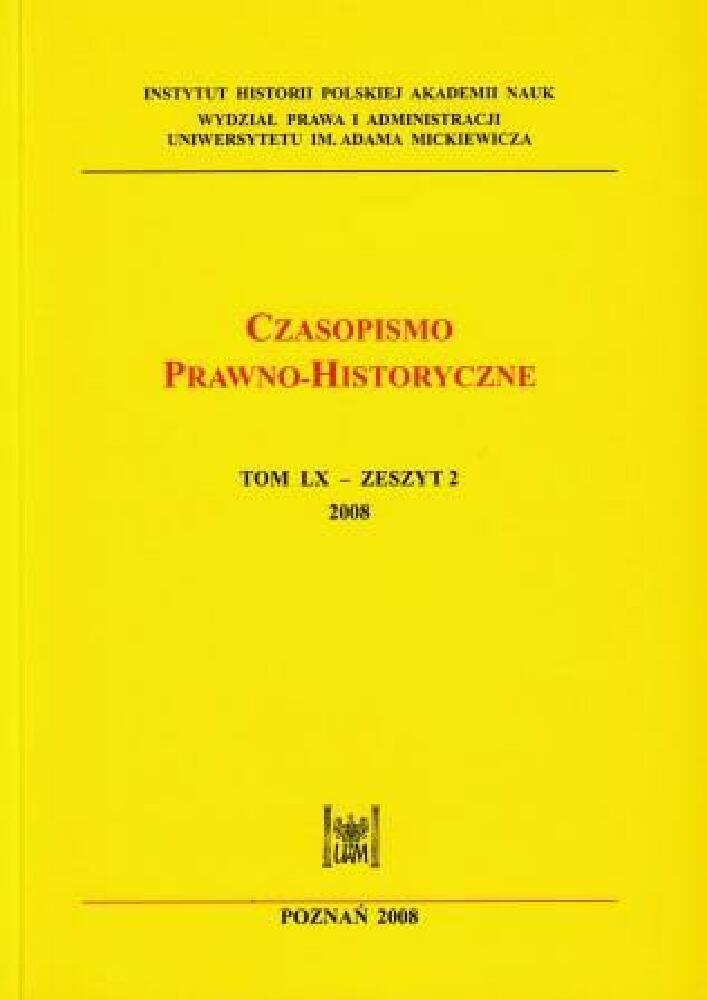Abstract
The escalation of hooliganism in the Polish People's Republic (1952-1989) was a consequence of demoralisation that followed the Second World War, and the faulting system in which the work with youth was conducted in postwar Poland. The majority of hooligan offences were tried by penal-administrative tribunals and the sentencing powers of those, after the penalty of imprisonment was abolished in 1951, were restricted to sentences of community work service or the imposition of fines. Those penalties were difficult to administer in a situation of no permanent employment. The Act on hooliganism passed in 1958 restored the penalty of detention and significantly increased the maximal fine into which the imprisonment sentence could be converted, thus ensuring proper administration and service of punishment. However, the pressure of the public opinion and governmental authorities on the tribunals dealing with hooligan offences frequently resulted in hasty sentencing decisions and false classification of various misdemeanours as hooligan offences. The Act of 1958 has also served, from time to time. as a repressive tool to fight pathologies such as alcoholism, prostitution, or vagrancy. Although it is a clear example of how the law could be treated and used instrumentally, the fact remains that the implementation of the Act in 1958 contributed considerably to the reduction of hooliganism in Poland of the 1960s.
Funding
Digitalisation and OA co-funded by the Minister of Education and Science (Poland) under contract no. BIBL/SP/0002/2023/1
License
Copyright by Faculty of Law and Administration, Adam Mickiewicz University, Poznań, 2008
OPEN ACCESS




